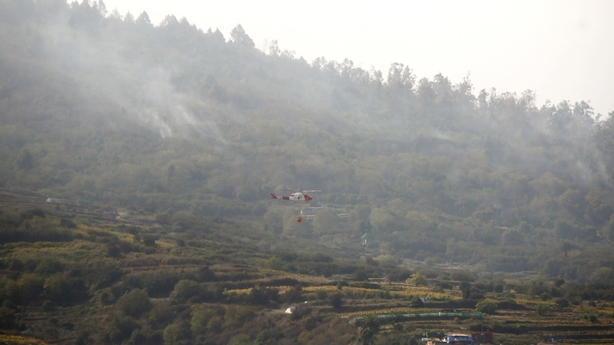More than 3,000 people on the Spanish island of Tenerife have evacuated their homes as a wildfire sparked by high temperatures and strong winds raged in a forested area already ravaged by fire in August.
Emergency services said on social media they had requested assistance from the army's Military Emergency Unit, saying the blaze, which ignited on yesterday, was a high-level emergency.
Thousands were also evacuated then, with most returning to their homes.
"The temperatures will remain higher (than usual), so we expect more fires to be reactivated in the area," Rosa Davila, head of Tenerife's local government, told a news briefing.
She gave no estimate on when those evacuated can return to their homes. Around 30 hectares have been affected since yesterday evening, she said.
Tenerife, one of the Canary Islands in the Atlantic off northwest Africa, is on alert for high temperatures that are expected to reach 39 degrees Celsius today.
National weather service AEMET said Spain as a whole registered a record six consecutive days of unseasonal heat between 28 September and 4 October and more were expected.

Scientists have linked searing temperatures and dry and windy conditions in many parts of the world, including southern Europe, to climate change.
The August fire had been brought under control but never completely extinguished, with embers still burning in the forest.
Usually, it takes two or three months to completely extinguish a large wildfire if there is rain and humidity but current temperatures above average make it more difficult, local emergency services said.
Stable dry weather increases the risk of fires and drought.
Still, the Canary Islands regional leader, Fernando Clavijo, was optimistic the blaze on the already scorched terrain can be brought under control.
"There is less fuel (for the fire), so it shouldn't get ou tof hand," he told a business event in Madrid.
Wildfires often occur during the summer months in Spain and neighbouring Portugal and are more rare in the autumn.
However, in October 2017 the two countries suffered hundreds of large blazes that claimed the lives of 45 people in Portugal and four in Spain.


